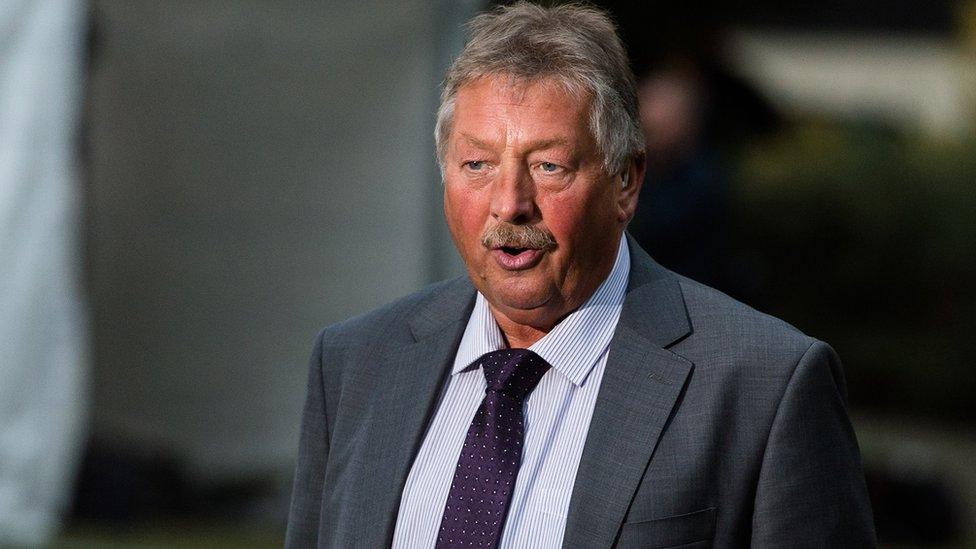NI politics: Poodles aside, advisers advise... but who decides?
- Published
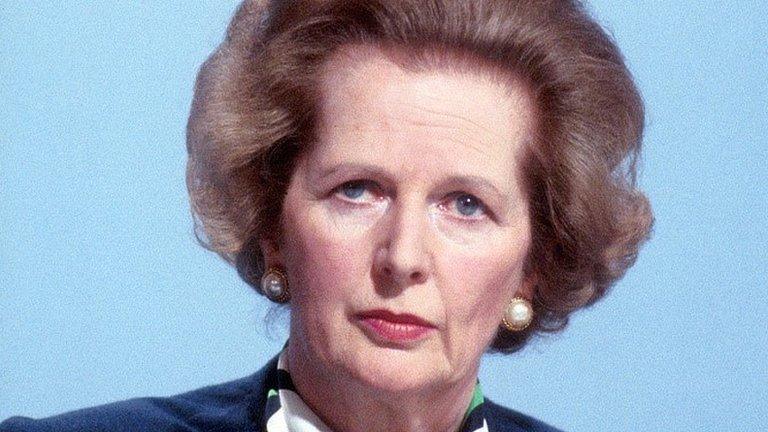
Margaret Thatcher had a straight forward view of how decision were taken within government
It was Margaret Thatcher who said: "Advisers advise but ministers decide."
Sammy Wilson said it rather less elegantly this week when he told Robin Swann to start acting as a politician "rather than a poodle for the unaccountable chief medical officer".
It meant roughly the same thing - but at Stormont the old mantra is not quite as simple as it sounds.
That is because when advisers advise at Stormont, 10 ministers from five different parties have to decide.
If they cannot decide, they vote - again it sounds simple.
But, as we know, it can be complicated.
Parties can deploy a cross-community vote requiring a majority of nationalists or unionists to support a decision.
Foster-O'Neill friction on show
Even when they do reach a decision, ministers can ask for it to be "revisited" as happened this week.
And finally - if you are still with me - when an executive decision reaches the assembly chamber it is often criticised by MLAs from the same five coalition parties which agreed it.
Welcome to the confusing world of Stormont decision making, where we have five parties often operating in government and in opposition at the same time.
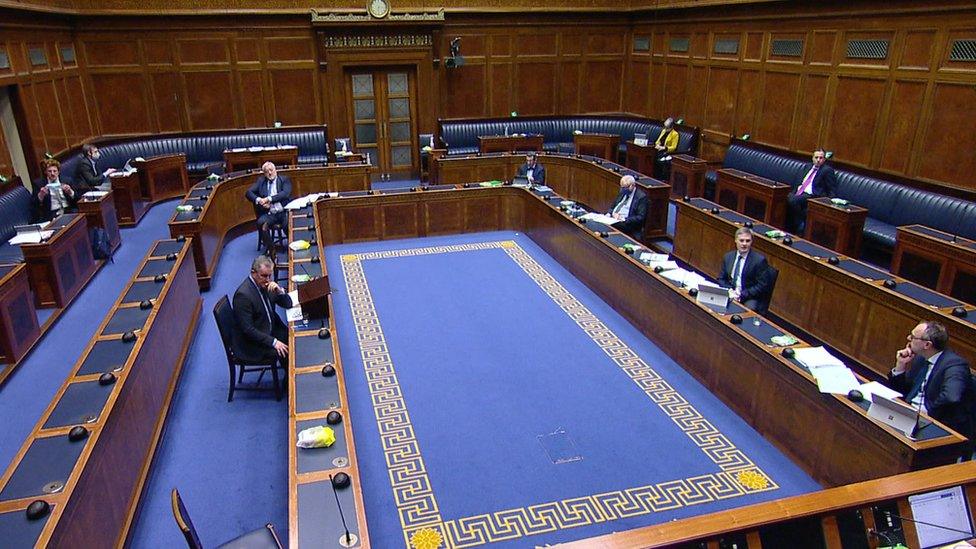
MLAs in the chamber often turn their ire on decisions made by their party colleagues at executive level
Now with big decisions stacking up and the post-Christmas unity evaporating, the pressure is starting to show.
This week, the frustration for some parties of being in power but not in control boiled over both inside and outside the executive about the re-opening of schools.
That friction was on display in Dungannon - when questioned about the Sammy Wilson "poodle" tweet, the first minister took a veiled swipe at her partner in government saying he "wasn't the only person this week to refer to people as dogs".
She was referring to comments by Deputy First Minister Michelle O'Neill when she described unionists "as dogs chasing their tails" over Brexit.
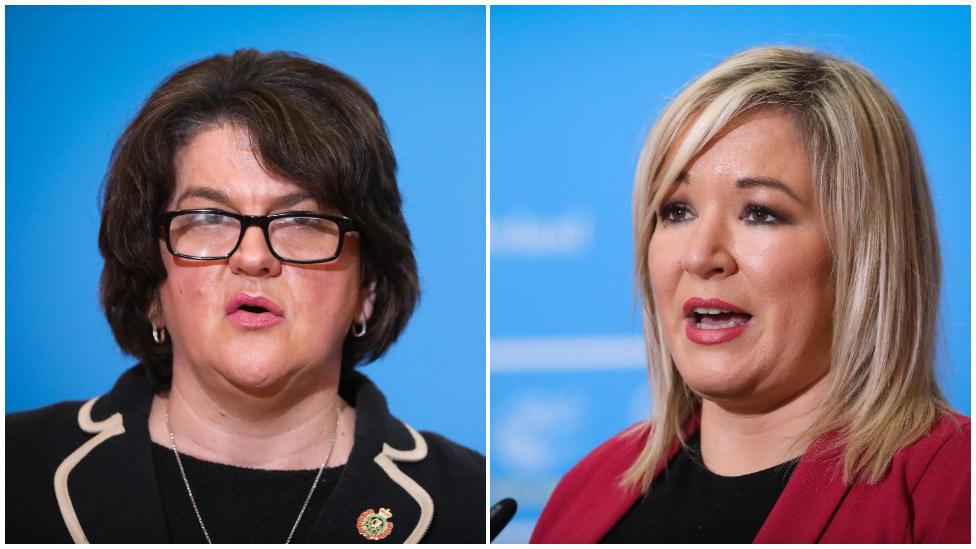
Arlene Foster made a canine-themed dig at Michelle O'Neill at a press conference this week over an earlier remark by the deputy first minister
Then we had Justice Minister Naomi Long attacking the DUP over its meeting with the Loyalist Communities Council, which speaks on behalf of the UVF and UDA.
On Friday, Health Minister Robin Swann, for a change, turned political in blaming "delayed decisions" and "party politicking" for the loss of lives during the pandemic.
We ended the week with a political stand-off over the DUP's agriculture minister ordering work to stop on the new permanent Irish sea border control posts.
It has been a bruising time for relations around the executive table as they face into the challenge of plotting a pathway out of lockdown.
A blueprint with no dates is what they are working on, which avoids any hard conversations for now about the fine detail.
They were due to finalise it tomorrow (Monday) but the stand-off over the border control posts has now landed on the agenda and that might take some time to resolve.
The pressure brought about by the Northern Ireland Protocol has been ramped up at a time when a lockdown-weary public were hoping for some clear decision-making from ministers.
Finding agreement at a time when executive relations are so strained won't be easy.
It feels like the five-party mandatory coalition straight jacket just got a little tighter.
Related topics
- Published26 February 2021
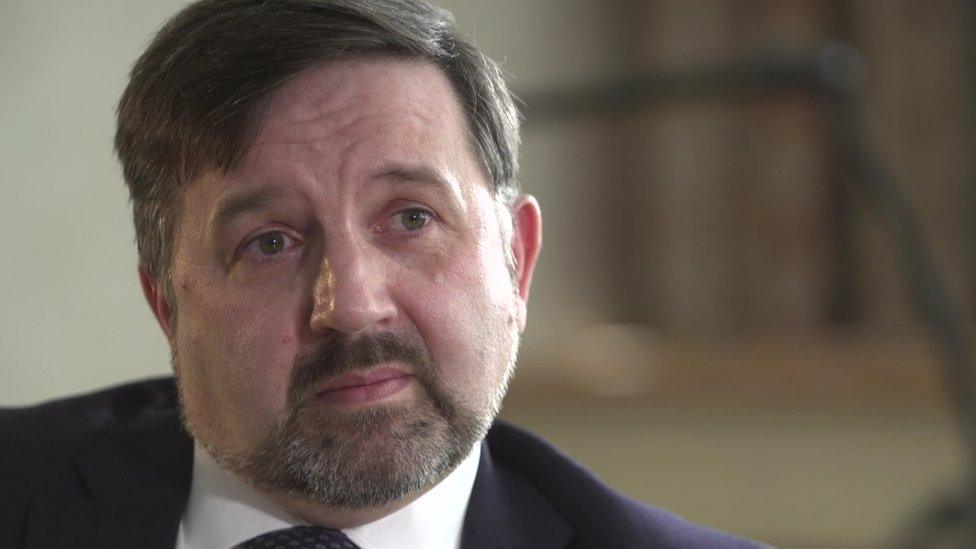
- Published25 February 2021
